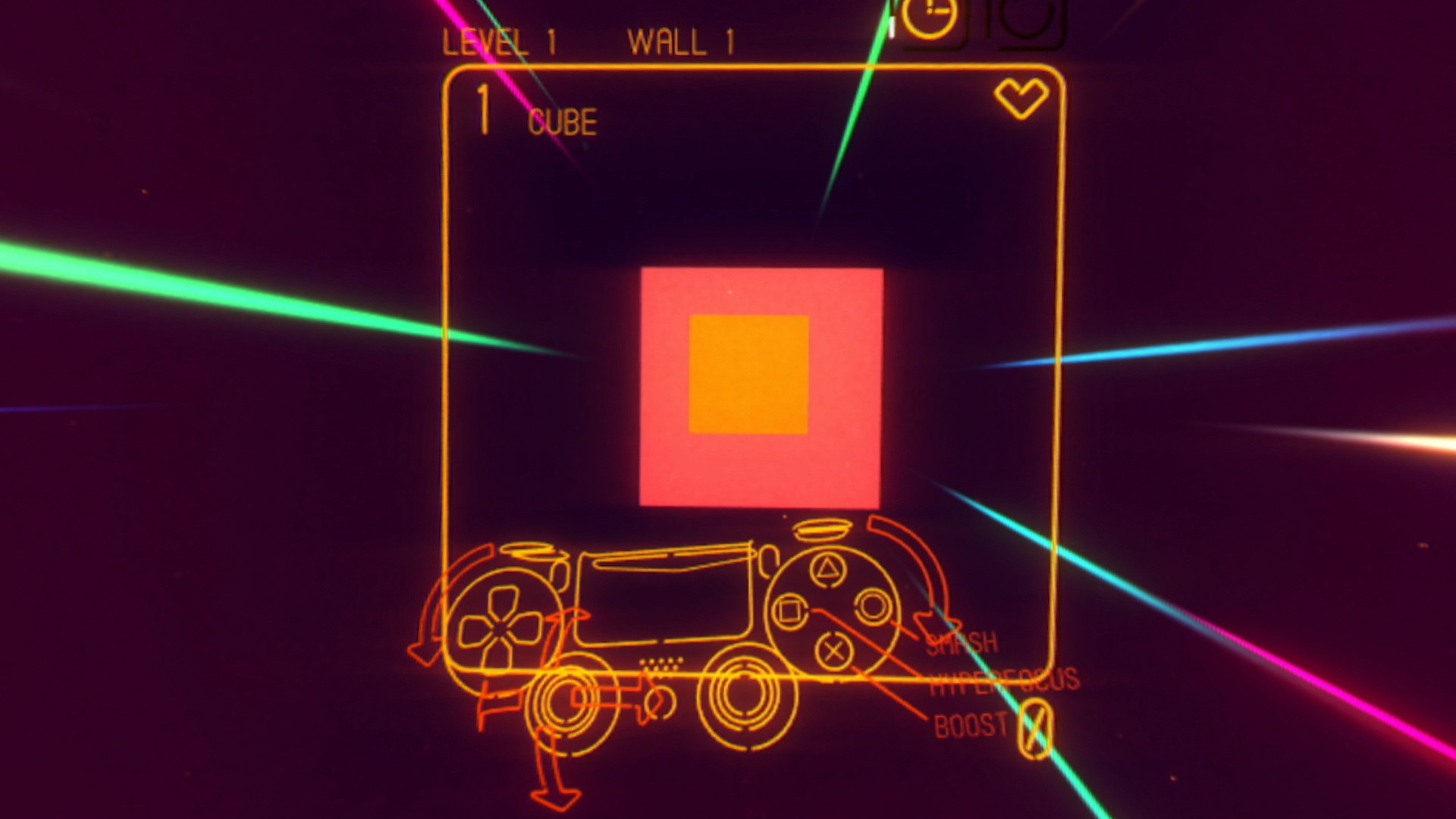Over the Christmas and New Year break, I caught up with a little reading. In Independent By Design—a book speaking to several small development studios and individuals who are making games a little differently (we ran some excerpts in 2016)—there's a Q&A with New Yorker writer and critic Simon Parkin."I must have been 16 or 17 when I started to think that there are people writing these games that I love playing," he recalls. "How did they start doing this? Who are they? Where do they live?"
Advertisement
Personally, in my teenage years, games were primarily playthings, brief distractions from college essay writing and driving lessons, alternatives to an evening sucking on a bottle in a nearby park with pals when money was tight. I don't think I began to consider the creators of these experiences until the final years of the PlayStation 2 era, and the beginning of generation seven: Hideo Kojima's Metal Gear Solid sequels, Fumito Ueda's pairing of Ico and Shadow of the Colossus, and distinctive works from the likes of Goichi Suda and Keita Takahashi.Not that I was necessarily playing everything these talents put out, at the time they came out; but I was reading, absorbing, making a multitude of mental notes—and eventually, I'd visit all of these singularly styled virtual worlds.To this day, when I play a video game that tickles me in a way I wasn't anticipating, that offers something fresh, I immediately click to Wikipedia: who is behind this marvelous thing, and how do I get more of it? The most recent example of this process, from perusal to play to about-to-pay-for-more is Hotel Dusk: Room 215, a game coincidentally celebrating its tenth anniversary in January 2017.
Header and all Hotel Dusk: Room 215 images courtesy of Nintendo
When I got my 3DS a few years back, I didn't envisage using it so frequently as a device for older DS titles. But, here we are: slotted into it as I type is Ghost Trick, which I've finally started this year, and I've previously enjoyed Aliens Infestation, Elite Beat Agents, Grand Theft Auto: Chinatown Wars and many more releases for Nintendo's handheld-before-this-one.
It's thanks to sometime Waypoint/VICE contributor Chris Scullion's excellent list of indispensable DS games, published on his blog in March 2015, that I added Hotel Dusk to that list. And why I've since been searching for information on both the games that preceded it, and what followed.
Advertisement
Hotel Dusk is a point-and-click affair in which you, as former police detective turned traveling salesman Kyle Hyde (a name that, throughout the game's 15 hours, constantly had "Born Slippy" rolling around my head), find yourself at a backwater California hotel at the beginning of a single, highly eventful night between Christmas and New Year, 1979.
The game takes place entirely within the walls of the hotel, Hyde constantly conversing with both the staff and fellow guests. There's a lot of backtracking as new leads present themselves, and sometimes overcoming problem-solving plotline obstacles can be infuriatingly obtuse. Often, there's a very particular way to combine elements or objects, or very specific ways to conduct lines of inquiry; and even when you know what you want to happen, achieving that result with the game's acquired taste UI isn't the easiest thing. "Classic" point and click, then, albeit mercifully with no actual red herrings.Article continues after the video below- - -Watch Waypoint's short documentary on the making of 'SuperHyperCube' - - -Ostensibly, Hyde is here to seek information on a vanished ex-partner from his force days; but the complex lives of Dusk's temporary residents repeatedly fork his path onto new, unexpected directions. And yet, in the end, everything (sort of) ties together—it turns out that the assortment of strangers bedding down under the same roof have secret pasts that connect in all manner of curious ways. Some paint, some plagiarize; others potter around the place seemingly with no purpose whatsoever, only to prove valuable pieces in a significantly grander puzzle.
- - -Ostensibly, Hyde is here to seek information on a vanished ex-partner from his force days; but the complex lives of Dusk's temporary residents repeatedly fork his path onto new, unexpected directions. And yet, in the end, everything (sort of) ties together—it turns out that the assortment of strangers bedding down under the same roof have secret pasts that connect in all manner of curious ways. Some paint, some plagiarize; others potter around the place seemingly with no purpose whatsoever, only to prove valuable pieces in a significantly grander puzzle.

Advertisement
Midway through the game—which, with schools-off family time taking up most of my waking hours, became my go-to bedtime entertainment for late December, perfectly suited as it is to bite-size sessions—I found my curiosity piqued beyond the confines of the fictional hotel. I sought out the makers of this peculiar adventure—a game that, until Chris's article, I'd never heard of, but now I'd sunk more time into than most triple-A big-hitters of 2016.(Brief aside: I also "enjoyed" how Hotel Dusk presented an unlikely parallel to my attempts to maintain a household. I always have a dozen and more jobs to do; but often, when I'm close to getting started on one of them, something else happens, which requires urgent attention. So, I'll want to decorate a bedroom, or finally sort out these sagging record shelves; but then a fence will blow down, or the shower explodes (which it did, right before Christmas).
Hyde wants to chase down his partner, long term; but hallway conversations keep leading him towards into more pressing problems. The seemingly small, insignificant gesture of returning a mislaid jigsaw piece ultimately results in a sub-plot about a missing mother—who, wouldn't you know it, is mixed up in wider happenings in the hotel's rather shady history. So every time our hero sighed, cursed, and then got on with something other than what he really came here to do, I could totally relate.)
Advertisement
Hotel Dusk: Room 215 image courtesy of Nintendo
The developers, Fukuoka-based studio Cing Inc., went out of business in early 2010. They'd made games exclusively for Nintendo platforms since a solitary PS2 title in 2003, across the DS and Wii platforms. Suffice to say I wasn't about to discover an unappreciated gem along comparable lines for either of Nintendo's contemporary consoles.
So then I go one level deeper: from the corporation to the individuals themselves. That's something we, as people who love video games and want them as appreciated as any other media, probably don't do enough, not to the extent we do film directors, songwriters, novelists. We should more regularly ask ourselves the questions Parkin posed himself as a teenager: who are these people, and where are they, today? And we should look beyond the usual suspects.Hotel Dusk was designed by Rika Suzuki, and directed by Taisuke Kanasaki—neither names that will likely resonate widely with the gaming public, in the manner of the aforementioned Kojima et al, or even someone like David Cage, or prolific indie creators like Rami Ismail or Lucas Pope. A little Googling and it turns out that Suzuki, after working on Dusk sequel Last Window: The Secret of Cape West, moved into online novels and then the Japanese-only (from the look of things) mobile RPG Black Rose Suspects.
Kanasaki, meanwhile, returned to the world of detective games in 2016 with Chase: Cold Case Investigations – Distant Memories for the 3DS. It has a hand-drawn aesthetic similar to Hotel Dusk— Chase star Shonosuke Nanase is a shameless ringer for Hyde—and while reviews are mixed (just as they were for Dusk) I'll probably be picking it up soon.
Advertisement
The same goes for Last Window, although it sells for a pretty penny, even second-hand, in the UK, making it more of birthday list addition than imminent acquisition. Meaning that my first "new" purchase after finishing Hotel Dusk will be the cheaper Another Code: Two Memories, a 2005 Cing Inc. title featuring the same director and designer pairing, and a comparable twin-screen interface split between top-down movement and close-up interactions.
It's an honorary mention on Scullion's list, an entry I'd not noticed until today. The words are few, but they say enough: "Before Cing made Hotel Dusk and Last Window, it released this lovely wee game about a young girl searching for the dad she thought was dead." Consider my money as good as spent.
Hotel Dusk: Room 215 image courtesy of Nintendo
I'd never have discovered this new seam of portable games had it not been for a recommendation followed and then my own intrigue into the people behind a (now) ten-years-old title. It's not like Hotel Dusk is an undiscovered diamond of the DS catalogue—it's appeared in many a list of underrated games for the system, and I've seen online commenters express their affection for Kyle Hyde, and their wishes to see him in a third adventure.
But Another Code and Cold Case Investigations are firmly in that Metacritic Yellow Band, if you know what I mean: games I'd have never looked at, with my own money on the line, had I not already established a precedent for probably enjoying them.Not long after the time of his realization that Real People made the games that he loved so much, Parkin took time out from college in London to hang around outside Squaresoft's UK office, in the English capital's central Golden Square. "I decided to go there to have a look and see if I could see some of the people making Final Fantasy," he told Independent By Design. "Obviously, none of them were there, they were all 10,000 miles away."Today, exploring beyond the credits of a favorite game, to see what else these creators have put their time and talent into, is more a case of mouse clicks than metro travelcards. It's something we should all do, because your next favorite game could well be a short virtual paper trail away, hidden from the spotlights of big sites and sales charts, but special nonetheless.Follow Mike on Twitter.
